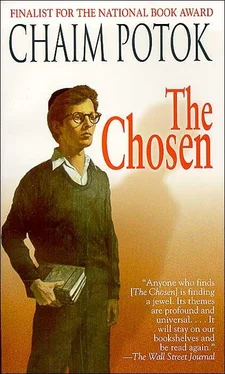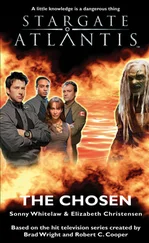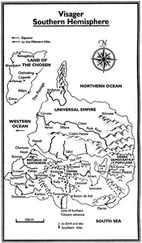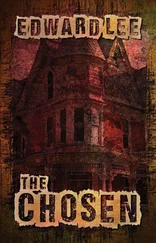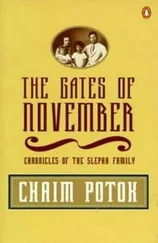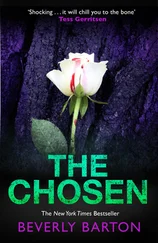'You frightened me,' I heard myself say.
'I am sorry.'
'Will you please go for that checkup?'
'Yes,' my father said.
'You really frightened me, talking that way. Are you sure you're all right?'
'I have a bad cold,' my father said. 'But I am fine otherwise.'
'You'll go for that checkup?'
'I will call Dr Grossman tomorrow and make an appointment for next week. All right?'
'Yes.'
'Fine. My young logician is satisfied. Good. Let us talk of happier things. I did not tell you that I saw Jack Rose yesterday. He gave me a thousand-dollar cheque for the Jewish National Fund.'
'Another thousand dollars?' Jack Rose and my father had been boyhood friends in Russia and had come to America on the same boat. He was now a wealthy furrier and a thoroughly non-observant Jew. Yet, six months ago, he had given my father a thousand-dollar contribution to our synagogue.
'It is strange what is happening,' my father said. 'And it is exciting. Jack is on the Building Committee of his synagogue. Yes, he joined a synagogue. Not for himself, he told me. For his grandchildren. He is helping them put up a new building so his grandchildren can go to a modern synagogue and have a good Jewish education. It is beginning to happen everywhere in America. A religious renaissance, some call it.'
'I can't see Jack Rose in a synagogue,' I said. On the few occasions when he had been over to our apartment, I had found his open disregard for Jewish tradition distasteful. He was a short man, with round, pink features, always immaculately dressed, always smoking long, expensive cigars. Once I asked my father why they had remained friends, their views about almost everything of importance were so different. He replied by expressing dismay at my question. Honest differences of opinion should never be permitted to destroy a friendship, he told me. 'Haven't you learned that yet, Reuven?' Now I was tempted to tell my father that Jack Rose was probably using his money to salve a bad conscience. But I didn't. Instead, I said, a little scornfully, 'I don't envy his rabbi.'
My father shook his head soberly. 'Why not? You should envy him, Reuven. American Jews have begun to return to the synagogue.'
'God help us if synagogues fill up with Jack Roses.'
'They will fill up with Jack Roses, and it will be the task of rabbis to educate them. It will be your task if you become a rabbi.'
I looked at him.
'If you become a rabbi,' my father said, smiling at me warmly.
'When I become a rabbi, you mean.'
My father nodded, still smiling. 'You would have been a fine university professor,' he said. 'I would have liked you to become a university professor. But I think you have already decided. Am I right?'
'Yes,' I said.
'Even with a synagogue full of Jack Roses?'
'Even with a synagogue full of Jack Roses,' I said. 'God help me.'
'America needs rabbis,' my father said.
'Well, it's better than being a boxer,' I told him. My father looked puzzled.
'A bad joke,' I said.
'Will you have some tea with me?'
I said I would.
'Come. Let us have some tea and continue to talk about happy things.'
So we drank tea and talked some more. My father told me about the Zionist activities he was engaged in, the speeches he was making, the funds he was raising. He said that in a year or two the crisis in Palestine would come to a head. There would be terrible bloodshed, he predicted, unless the British would give over the problem to the United Nations. Many American Jews were not yet aware of what was going on, he said. The English papers did not tell the entire story. A Jew had to read the Yiddish press now if he wished to know everything that was happening in Palestine. American Jews had to be awakened to the problem of a Jewish state. His Zionist group was planning a mass rally in Madison Square Garden, he told me. The publicity would he going out this week, and there would be a large ad soon in the New York Times, announcing the rally. It was scheduled for late February.
'I wonder how Reb Saunders will feel when he finds out that Danny is the friend of the son of a Zionist,' I mused. I had told my father about Reb Saunders' explosion.
My father sighed. 'Reb Saunders sits and waits for the Messiah,' he said. 'I am tired of waiting. Now is the time to bring the Messiah, not to wait for him.'
We finished our tea. My father returned to his study, and I went to bed. I had some terrible dreams that night, but I could remember none of them when I woke in the morning.
It was Friday, and I had nothing planned. Danny always spent his mornings studying Talmud, so I decided that rather than waste the day I would go over to the college library and see if I could find something on experimental psychology. It was a little before ten o'clock when I woke, and my father had already left to teach, so Manya served me breakfast alone, calling me a lazy sleepyhead and a few other things in Russian which I didn't understand, and then I took the trolley over to the college.
The library had a large section devoted to psychology. I found some books on experimental psychology and leafed through them slowly, then checked the indexes and bibliographies. What I discovered made it very clear why Danny was feeling so miserable.
I had chosen the books at random, but even a quick glance at them made it apparent that they were all structured along similar lines. They dealt only with experimental data and were filled with graphs, charts, tables, photographs of devices for the measuring of auditory, visual, and tactile responses, and with mathematical translations of laboratory findings. Most of the books didn't even cite Freud in their bibliographies. In one book; Freud was referred to only once, and the passage was far from complimentary.
I checked the indexes under 'unconscious'. Some of the books didn't even have it listed. One book had this to say: It is impossible here to discuss the 'new psychology of the unconscious, but exaggerated as are many of the statements made as to the revolution in psychology caused by psychoanalysis there is little doubt that it has influenced psychology permanently. And it is well that the teacher should study something of it, partly because of its suggestiveness in many parts of his work, and partly to be on guard against the exaggerated statements of extremists and the uncritical advocacy of freedom from all discipline, based upon them.
That 'uncritical advocacy of freedom from all discipline' sounded a lot like Professor Appleman. Then I found something that really sounded like Professor Appleman: Magic depends on tradition and belief. It does not welcome observation, nor does it profit by experiment. On the other hand, science is based on experience; it is open to correction by observation and experiment.
The book in which I found that passage was full of tables and graphs showing the results of experiments on frogs, salamanders, rats, apes, and human beings. It didn't mention Freud or the unconscious anywhere.
I felt sorry for Danny. He had spent two years studying about the mind from the point of view of Freudian analysis. Now he was studying about the mind from the point of view of physiology. I understood what he had meant when he said that experimental psychology had nothing to do with the human mind. In terms of psychoanalytic theory, it had very little to do with the human mind. But psychoanalysis aside, I thought the books were very valuable. How else could a science of psychology be built except by laboratory findings? And what else could you do in a laboratory except experiment with the physiology of animals and men? How could you experiment with their minds? How could anyone subject Freud's concept of the unconscious to a laboratory test?
Poor Danny, I thought. Professor Appleman, with his experimental psychology, is torturing your mind. And your father, with his bizarre silence – which I still couldn't understand, no matter how often I thought about it – is torturing your soul.
Читать дальше
